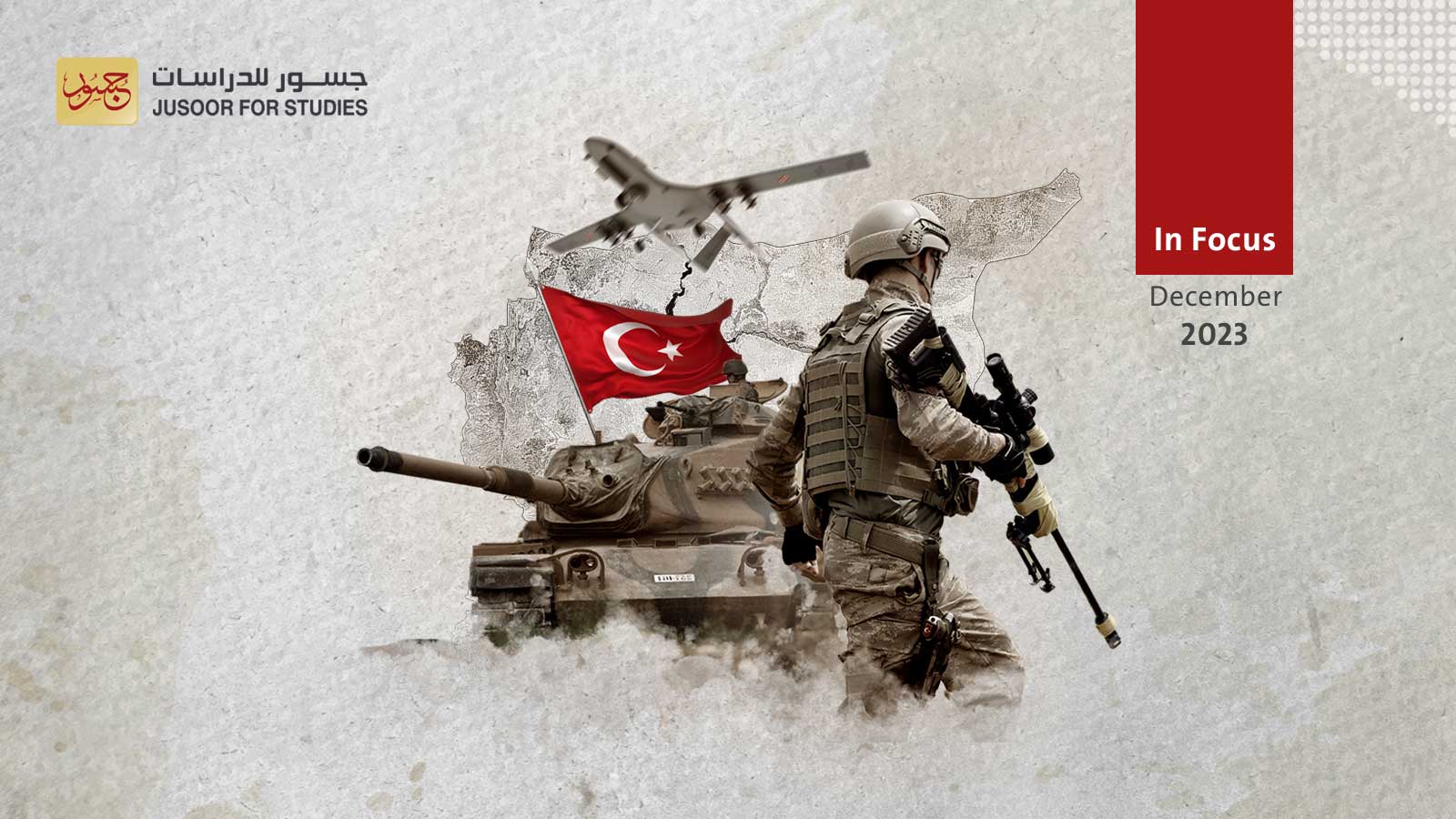The Factors Driving Turkey’s Escalation Against the Kurds in Eastern Syria
On December 23, Turkey launched its latest bombing campaign against the Syrian Democratic Forces (SDF) in eastern Syria. The new campaign is part of general escalation over the last quarter of 2023, during which Turkey significantly intensified its airstrikes against Kurdistan Workers’ Party (PKK) and SDF positions in Syria and Iraq. Since the beginning of October, the Turkish Air Force and the Intelligence Service have carried out three large-scale air operations, in addition to separate, ongoing targeting of PKK leaders and forces.
The latest escalation appears to be in response to a series of PKK attacks in northern Iraq and in Turkey. These include two attacks by the PKK on Turkish army bases in the Hakurk and Al-Zab regions of northern Iraq, which killed 12 Turkish soldiers. A previous campaign Turkey launched in October was in response to an attack against an office of the Turkish Ministry of the Interior in the capital, Ankara, which was claimed by the PKK.
The escalation also reflects Turkey’s concerns after the Kurdish-dominated Autonomous Administration of North and East Syria published what it called its “Social Contract” on December 13, fueling Turkey’s long-held fears over the establishment of a Kurdish entity on its southern borders.
For the first time, the document uses the term “region” (iqlim) to describe the areas under SDF control. It lays out the form of the state, its political system and method of administration, how disputes will be resolved between its institutions and agencies, delegates the right to make decisions about war and peace and to establish diplomatic relations, as well as claiming the region’s right to pursue its own independent monetary policy.
It is likely that Turkey is also escalating partly as a way to prevent the Syrian regime and its allies from using the Kurds’ move to put pressure on Ankara.
The new military escalation indicates a qualitative shift in Turkey’s strategy against the PKK threat to its national security, which defines all the Kurdish group’s infrastructure and energy facilities in Syria and Iraq as its targets. This is reflected in the nature of the targets hit in recent strikes. Many were facilities for the production and transportation of oil and gas, along with important economic facilities affiliated with the Autonomous Administration or the PKK and the SDF in Syria. These facilities had provided significant and ongoing financial resources to fund the group’s activities in Syria, Iraq and Turkey alike. It is noteworthy that the United States has not publicly moved to rein in the latest Turkish bombing campaign in Syria, despite the Autonomous Administration’s argument that the strikes against service facilities will increase the suffering of civilians in the region.
This form of escalation serves a purpose for both the United States and Turkey. On the one hand, Washington needs Ankara’s approval for Sweden to join the North Atlantic Treaty Organization (NATO). It also wants to pressure the Democratic Union Party - the Syrian branch of the PKK - to return to intra-Kurdish dialogue Washington launched in 2020.
Turkey, for its part, wants to at the very least to undermine the PKK’s capabilities and sources of funding, and to prevent its project to transform areas under SDF control in Syria into an operational base for PKK members and activities such as transporting, training, arming and hospital treatment, or to invest in these areas as a cash cow to secure stable financial resources for PKK activities. Turkey apparently realizes that this form of escalation is a temporary alternative to another, costly ground military operation in Syria, especially in light of its failure to wipe out the party’s fighters and leaders and to break up its system of control and funding sources in eastern Syria.
In conclusion, it is clear that Turkey will continue its military air operations against the PKK and all its affiliates in Syria and Iraq, marking a qualitative change in its strategy. This will not be limited to strikes against security and military installations but will also hit the party’s growing infrastructure within areas of Syria under SDF control.








